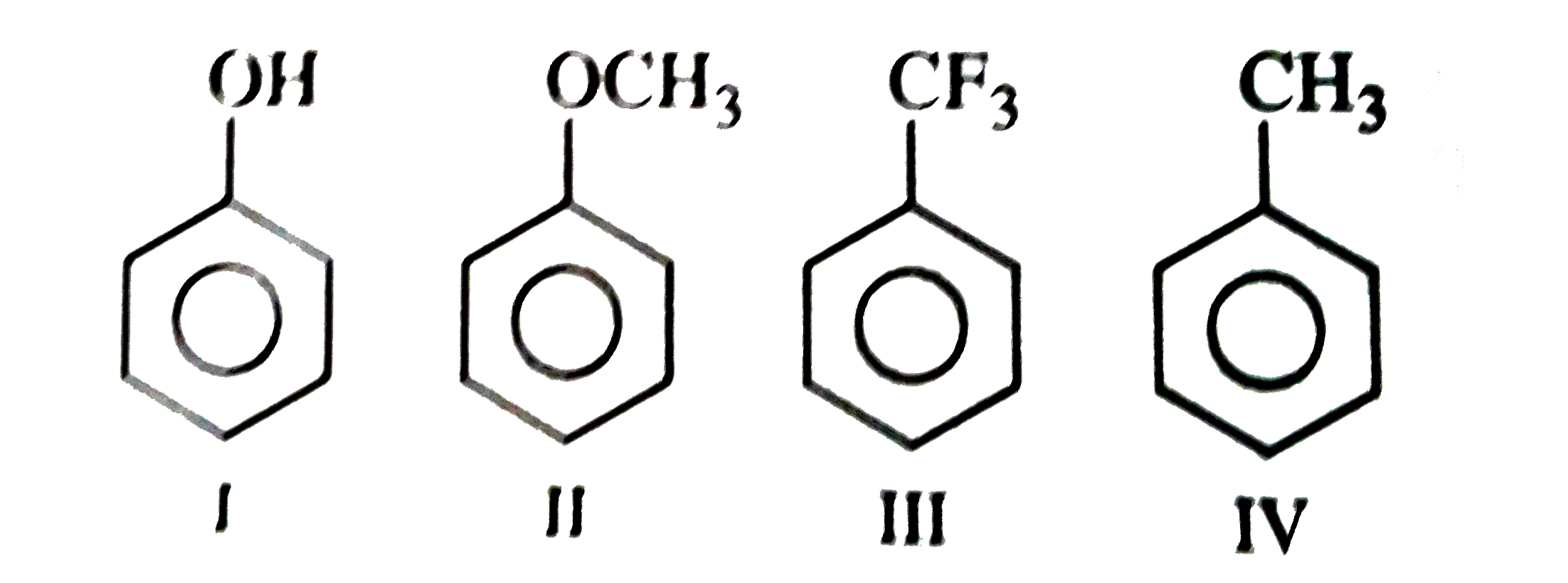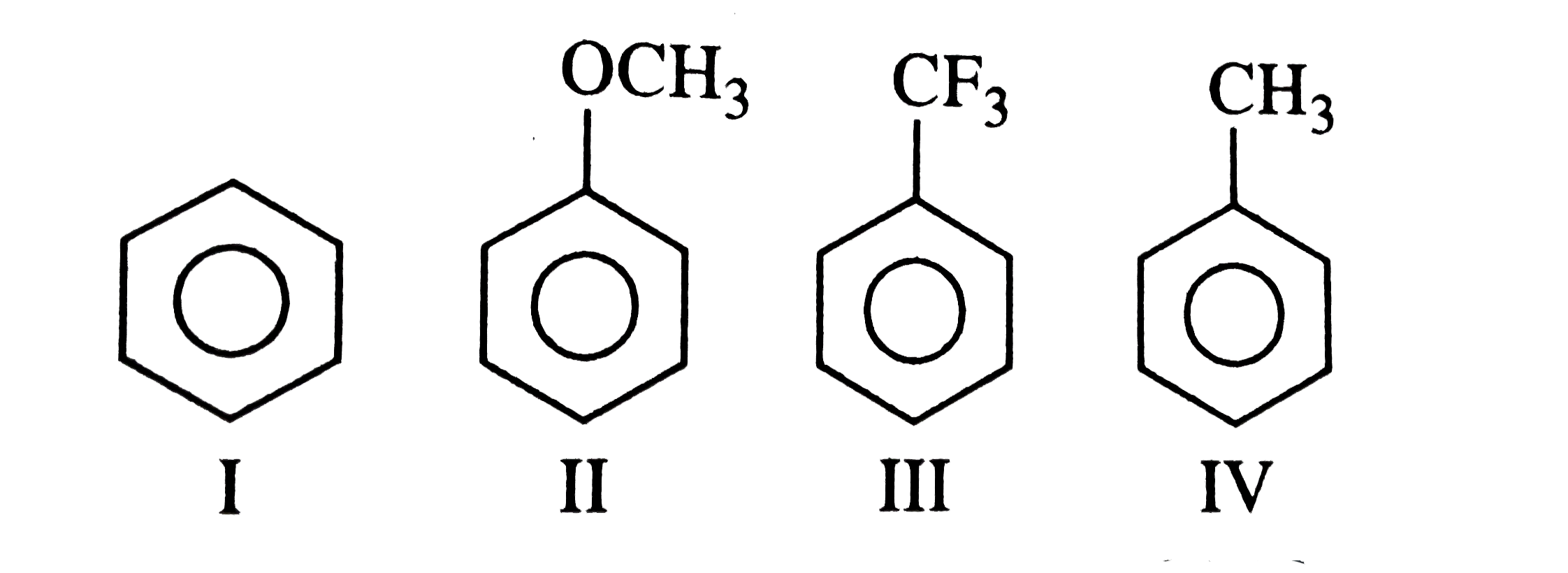Assertion: Anisole undergoes eletctrophilic substitution at o−and p−positions.
Reason: Anisole is less reactive than phenol towards electrohphilic substitution reactions.
If both (A) and (R ) are correct and (R ) is correct explanation of (A ).
If both (A ) and (R ) are correct but (R ) is not correct explanation of (A ).
If (A) is correct but (R ) is incorrect
If (A) is incorrect but (R ) is correct.
The correct Answer is:B
Step by step video, text & image solution for Assertion: Anisole undergoes eletctrophilic substitution at o-and p-positions. Reason: Anisole is less reactive than phenol towards electrohphilic substitution reactions. by Chemistry experts to help you in doubts & scoring excellent marks in Class 12 exams.
Updated on:21/07/2023Topper's Solved these Questions
- ALCOHOLS, PHENOLS AND ETHERSBOOK - OP TANDONCHAPTER - ALCOHOLS, PHENOLS AND ETHERSEXERCISE - PROBLEMS BASED ON STRUCTURE AND PROPERTIES
7 Videos
- ALCOHOLS, PHENOLS AND ETHERSBOOK - OP TANDONCHAPTER - ALCOHOLS, PHENOLS AND ETHERSEXERCISE - BRAI STORMING PROBLEMS
32 Videos
- ALCOHOLS, PHENOLS AND ETHERSBOOK - OP TANDONCHAPTER - ALCOHOLS, PHENOLS AND ETHERSEXERCISE - PHENOLS
91 Videos
- ALDEHYDES AND KETONES BOOK - OP TANDONCHAPTER - ALDEHYDES AND KETONES EXERCISE - SINGLE INTEGER ANSWER TYPE QUESTIONS
10 Videos
Similar Questions
Knowledge Check
Statement-1: Anisole undergoes electrophilic substitution at o- and p-positions.
Statement-2: Anisole is less reactive than phenol towards electrophilic substitution reactions.AStatement-1 is true, statement-2 is true, statement-2 is a correct explanation for statement-1.BStatement-1 is true,s tatement-2 is true, statement-2 is not a correct explanation for statement-1.CStatement-1 is true, statement-2 is false.DStatement-1 is false, statement-2 is true.Assertion: Anisole undergoes eletctrophilic substitution at o−and p−positions.
Reason: Anisole is less reactive than phenol towards electrohphilic substitution reactions.AStatement 1 is true, statement 2 is true, statement 2 is a correct explanation for statement 2BStatement 1 is true , statement 2 is true, statement 2 is not a correct explanation for statement 2CStatement 1 is true, statement 2 is falseDStatement 1 is true, statement 2 is trueThe most reactive compound towards electrophilic substitution reaction is
AC6H6BC6H6ClCC6H5−CH3DC6H5−OCH3
Aryl halide is less reactive than halide towards nucleophilic substitution because
View SolutionAssertion : Aromatic aldehydes and ketones undergo electrophilic substitution reaction at metaposition.
Reason : Carbonyl group activates the ring towards electrophilic substitution reactions.
View SolutionWhich of following species is less reactive than benzene in electrophilic substitution reaction
View SolutionThe order of reactivity of the following towards electrophillic substitution reaction is

View SolutionAryl halide is less reactive than alkyl halide towards nucleophilic substitution because
View Solution

